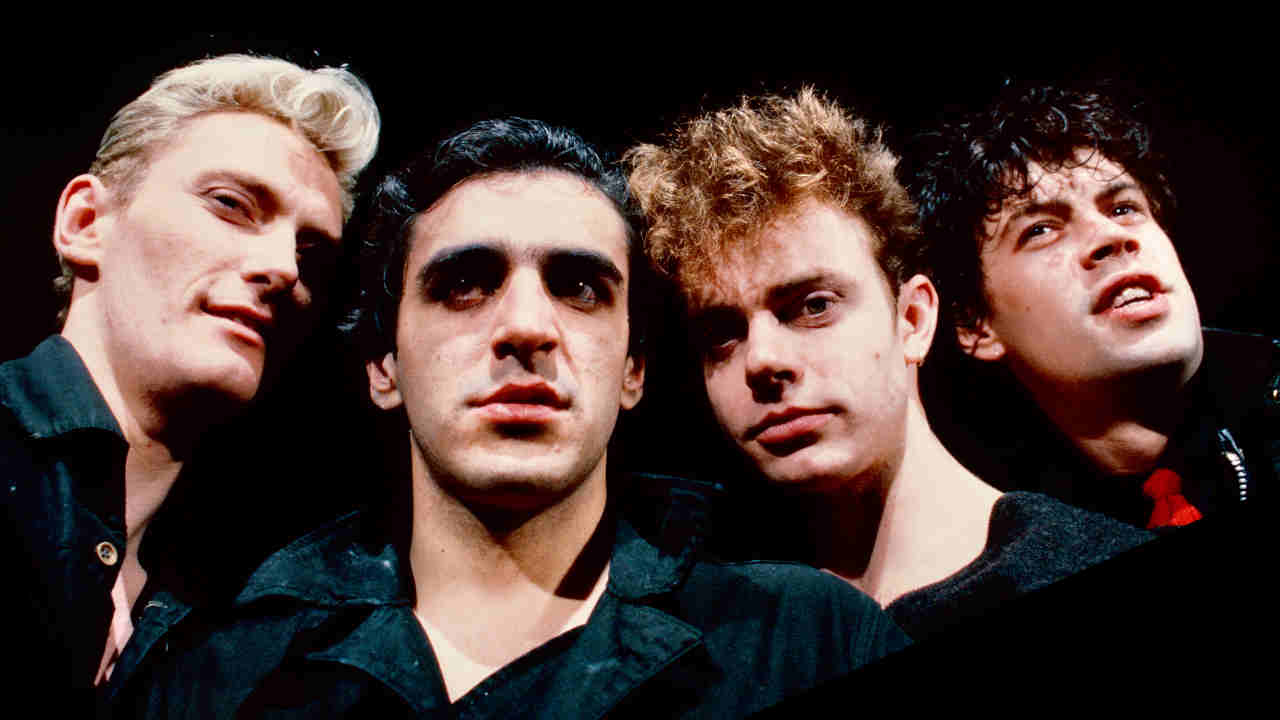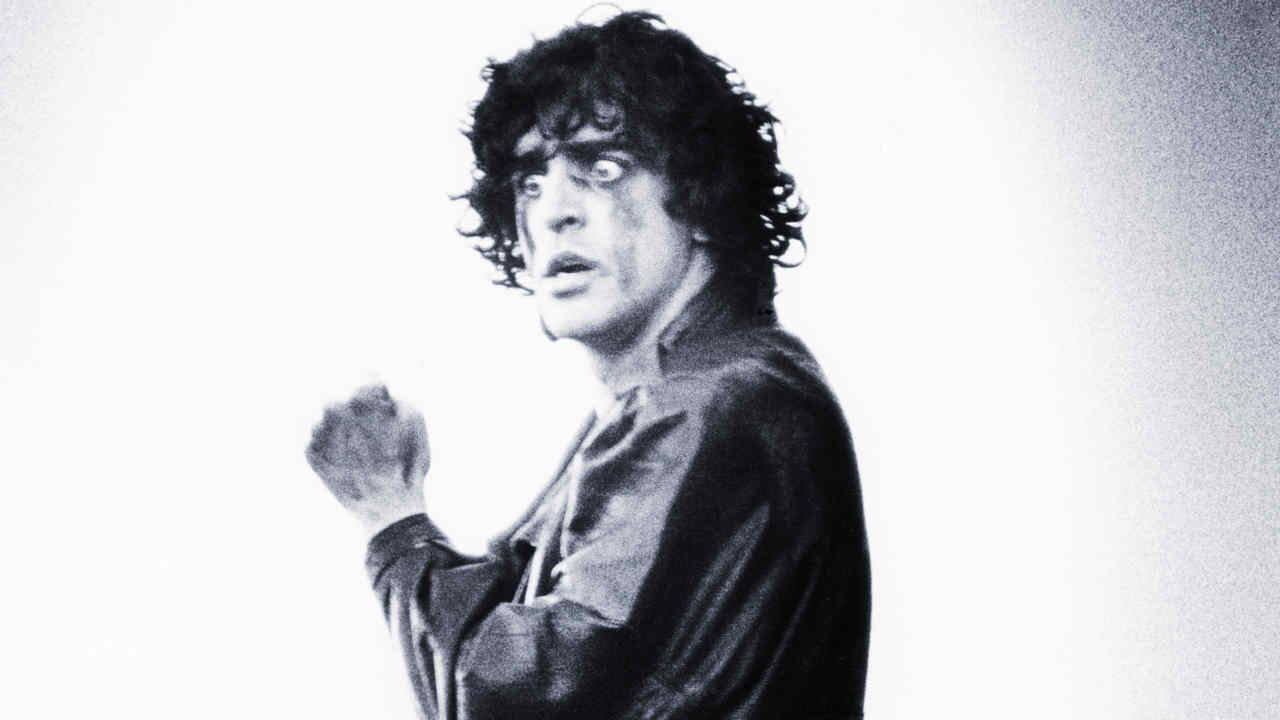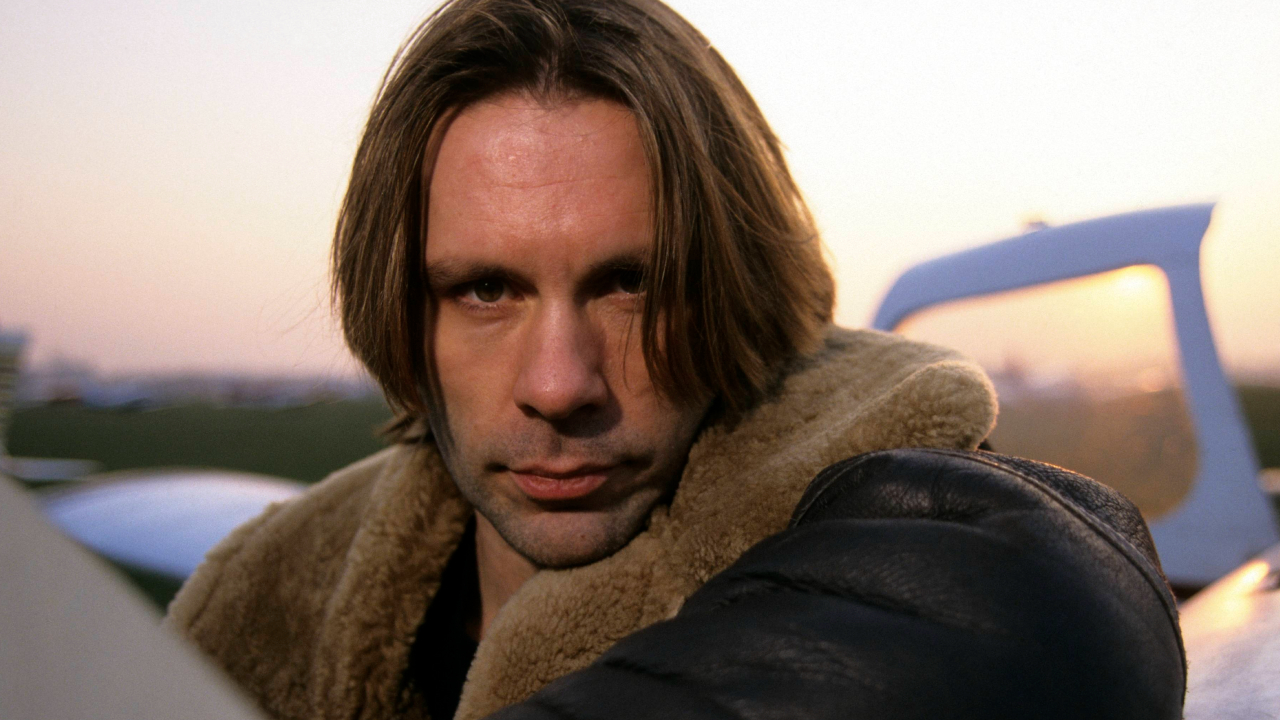“It became a bit of a curse. We were never really a singles band”: The hypnotic 80s single that gave an apocalyptic post-punk band an unlikely Cold War-inspired hit
When Killing Joke became unlikely pop stars

Select the newsletters you’d like to receive. Then, add your email to sign up.
You are now subscribed
Your newsletter sign-up was successful
Want to add more newsletters?

Every Friday
Louder
Louder’s weekly newsletter is jam-packed with the team’s personal highlights from the last seven days, including features, breaking news, reviews and tons of juicy exclusives from the world of alternative music.

Every Friday
Classic Rock
The Classic Rock newsletter is an essential read for the discerning rock fan. Every week we bring you the news, reviews and the very best features and interviews from our extensive archive. Written by rock fans for rock fans.

Every Friday
Metal Hammer
For the last four decades Metal Hammer has been the world’s greatest metal magazine. Created by metalheads for metalheads, ‘Hammer takes you behind the scenes, closer to the action, and nearer to the bands that you love the most.

Every Friday
Prog
The Prog newsletter brings you the very best of Prog Magazine and our website, every Friday. We'll deliver you the very latest news from the Prog universe, informative features and archive material from Prog’s impressive vault.
For a brief period in the mid-1980s it seemed that the world might just be ready for Killing Joke. As post-punk made inroads into the mainstream, the hypnotic repetitions, apocalyptically portentous lyrics and drum-driven, bottom-end primal funk of Killing Joke was on the cusp of breakthrough. Their 1983 album Fire Dances teetered on the brink. But in order to operate at the peak of their potential Killing Joke needed to record in an environment more fitting to their sound and mood.
“We were writing and recording in Berlin in the middle of the Cold War,” singer and keyboard player Jaz Coleman remembers of the sessions that produced 1985’s Night Time album and it’s hit single Love Like Blood. “We were thrilled to bits. We loved the Cold War. It was one of the best times to be in Berlin. At Hansa studios we would open the windows and the wall was right next to us. The guards outside on the control tower could hear our mixes and were giving us the thumbs-up.”
No band thrives on oppressive totalitarianism like Killing Joke, and the creative process slipped into overdrive in such deliciously dour circumstances. “Love Like Blood took about one-and-a-half minutes to write,” Jaz says off-handedly, when speaking of what many regard as his masterpiece. “Me and Geordie just wrote it. We just got it straight away – this bit here, that bit there, done.”
The Killing Joke method of songwriting is very organic. “Normally we all just get together and get on a fucking almighty big groove and stay on it and see where it takes us,” Jaz laughs. Well, ‘laughs’ isn’t exactly the right word for it; he pulls his lower face into a fearful rictus, bulges his eyes in a form of delight that’s ominously close to fury, throws his head back and bellows ‘HA!
HA! HA!’ at the ceiling for just a bit longer than is strictly necessary. There’s more charisma in one of Jaz’s laughs than in most bands’ entire careers. When the light fittings stop shaking, he resumes: “It’s a spontaneous thing. It really isn’t an intellectual process. Then, when you’ve got the right vocal line, everyone’s laughing and they go: ‘Yeah, that one!’”
Everyone’s laughing? Imagine that… Incredibly, the Berlin Wall didn’t fall for another five years.

The unavoidably immense groove that propels Love Like Blood’s simplistic yet seductive riff into the listener’s psyche owes absolutely nothing to studio trickery, as Jaz reveals: “Geordie [Walker, KJ guitarist who died in 2023] won’t do overdubs. In fact he usually prefers a single guitar track.”
Therein lies the secret of Killing Joke’s formidable live reputation. While many bands would need a regiment of clones to replicate the sonic assault promised by their records, Geordie Walker needs nothing more than a couple of effects pedals to sound like a bombing of Hiroshima that you can dance to.
Sign up below to get the latest from Classic Rock, plus exclusive special offers, direct to your inbox!
Apart from the tightly locked lope of Geordie’s dense guitar minimalism, Paul Raven’s rolling bass under-throb and Paul Ferguson’s disco-tinged tribal tattoos, the final piece of the Killing Joke jigsaw comes from Jaz’s uncharacteristically subtle keyboards, an almost ambient backdrop to a fearsome foreground of face-ripping fury. As Love Like Blood throttles back for an eight-bar breather prior to its final coda, the genius touch of a single clanging piano chord repeatedly tolling its death knell leaps disturbingly from the mix.
“Keyboards with Killing Joke were always simple,” Jaz says of the disarming simplicity of his instrumental contributions. “It’s really more about creating atmospheres than any sort of tonal melodies. It’s just a spontaneous process in the studio. I like the studio process. You look at the trends now in music, and recording is now a by-product of the industry; there’s not so much emphasis based on recording any more.”
As is so often the case when alternative rock bands signed to major labels attain a degree of mainstream success against the run of play, their corporate paymasters expect them to repeat the trick to order. Expectations are raised, unattainable targets are set, relationships become fractious and, ultimately, the apple-cart of comfortable, artistically free underachievement is well and truly upset.
“It became a bit of a curse after a while,” Jaz admits of his short relationship with Top 20 chart success and the attendant Top Of The Pop-pourri that went with it. “Because we were never really a singles band… It was an accident. It can be a terrible thing to happen to a band. The pressure to come up with another Love Like Blood was relentless, and I didn’t like what these demands were doing to us artistically. They were interesting days, but I can’t say I enjoyed the Love Like Blood phase. It fucked us up for a while, to be honest.”
Jaz ponders the irony of this ultimate killing joke for a short moment before throwing back his head and laughing. “HA! HA! HA!” he booms and, incredibly, nobody dies.
Originally published in Classic Rock issue 114 (December 2007)

Classic Rock’s Reviews Editor for the last 20 years, Ian stapled his first fanzine in 1977. Since misspending his youth by way of ‘research’ his work has also appeared in such publications as Metal Hammer, Prog, NME, Uncut, Kerrang!, VOX, The Face, The Guardian, Total Guitar, Guitarist, Electronic Sound, Record Collector and across the internet. Permanently buried under mountains of recorded media, ears ringing from a lifetime of gigs, he enjoys nothing more than recreationally throttling a guitar and following a baptism of punk fire has played in bands for 45 years, releasing recordings via Esoteric Antenna and Cleopatra Records.
You must confirm your public display name before commenting
Please logout and then login again, you will then be prompted to enter your display name.

